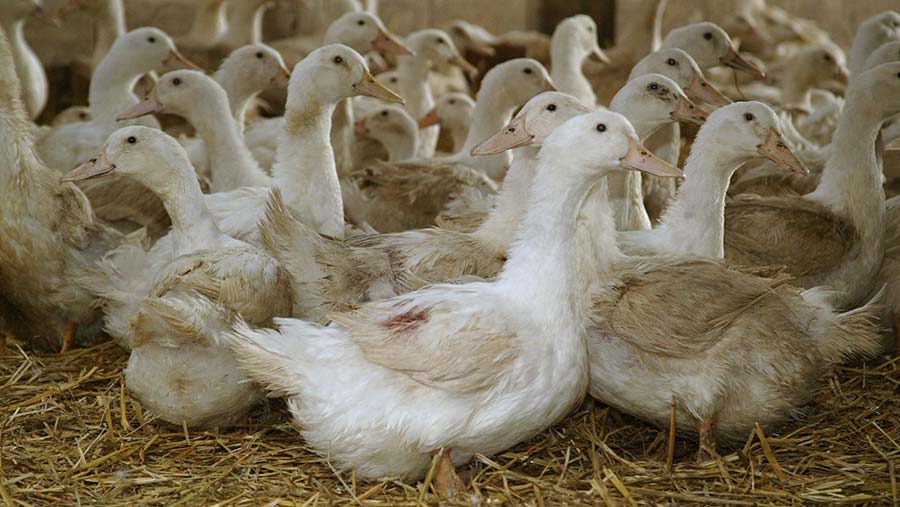Wales records first avian flu outbreak in six months
 © Tim Scrivener
© Tim Scrivener Wales has recorded its first case of avian influenza in six months, government authorities have revealed.
The deputy chief veterinary officer for Wales, Dr Gavin Watkins, has confirmed the presence of a highly pathogenic H5N1 strain of avian flu at premises near Arthog, in Gwynedd, North Wales.
Farmers Weekly understands that the latest outbreak was found in chickens and ducks on a smallholding.
See also: Why bird flu threat is rising and what can be done about it
Restrictions have been introduced around the infected premises, including a 3km protection zone and a 10km surveillance zone. Within these zones, bird movements and gatherings are restricted and all holdings that keep birds must be declared.
“This sixth case of avian influenza in Wales in the last 12 months is cause for concern and evidence of the continuing risk that is out there to our birds,” said Dr Watkins.
The previous most recent cases of avian flu recorded in Wales were in February at two premises in Montgomeryshire.
Dr Watkins urged poultry farmers and bird keepers, with the onset of autumn and winter, to take steps to review biosecurity measures they have in place.
“There has been an unprecedented incursion of avian influenza into Great Britain and Europe in 2022 and keepers of birds must be vigilant and ensure they have the very highest levels of biosecurity in place,” he said.
“There is always more that can be done to protect your birds.”
He added: “Make improvements where you can to prevent further spread of this devastating bird disease.
“Good biosecurity is always key in protecting animals from disease.”
Largest outbreak
The UK has faced its largest ever outbreak of bird flu, with more than 130 cases confirmed across the country since late October 2021.
Last week, the Animal and Plant Health Agency (Apha) declared an Avian Influenza Prevention Zone (AIPZ) across Devon, Cornwall and parts of Somerset following a number of detections of avian flu in poultry and wild and captive birds.
Defra and the Welsh government have also published practical guidance for land managers to reduce the spread of avian flu in wild birds. During the current outbreak, more than 1,500 wild birds from 61 different species have returned positive results from more than 360 locations.
The UK Health Security Agency says the virus mainly affects birds, adding that the risk of the virus to human health remains “very low”.
The Food Standards Agency says avian flu poses a “very low” food safety risk. Properly cooked poultry and poultry products, including eggs, are safe to eat, consumers have been told.
